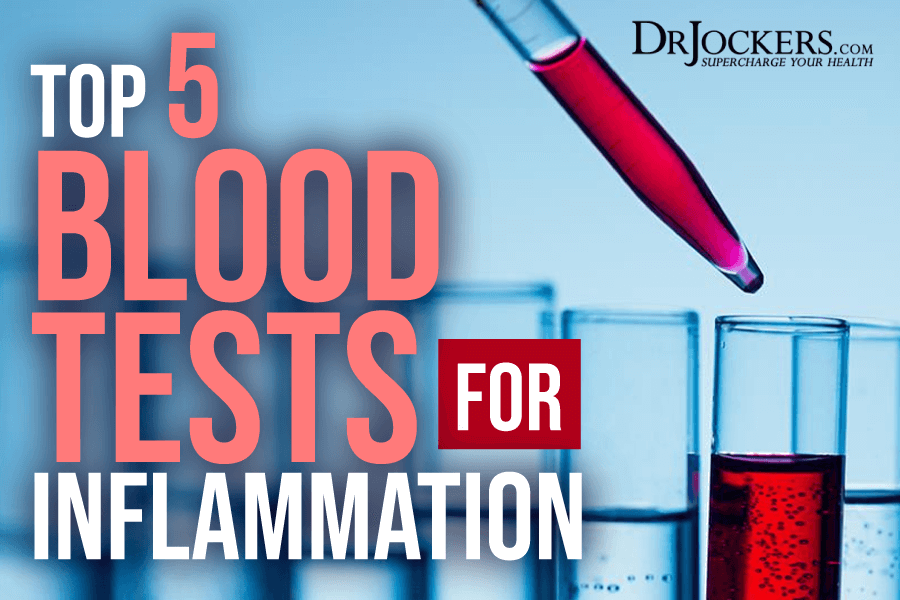 Top 5 Blood Tests for Inflammation
Top 5 Blood Tests for Inflammation
Inflammation is one of the most insidious causes of disease that we overlook. Chronic inflammation is persistent, low-grade inflammation that can last for years. It is a precursor to accelerated aging and disease. If you are dealing with health issues it is important to get specific blood tests to evaluate your level of inflammation.
Inflammation has been linked to almost every major health problem. It inhibits optimal function of your body from a cellular level, making you a slower healer and promoting disease at the deepest level. Luckily, there are advanced tests for inflammation that can help you design an anti-inflammatory lifestyle.
There are several tests that can help determine the level of inflammation in your body. These tests should be performed routinely as a preventative measure and to monitor inflammatory status. This article will discuss what inflammation is, the top 5 tests for inflammation, and how you can test your own.
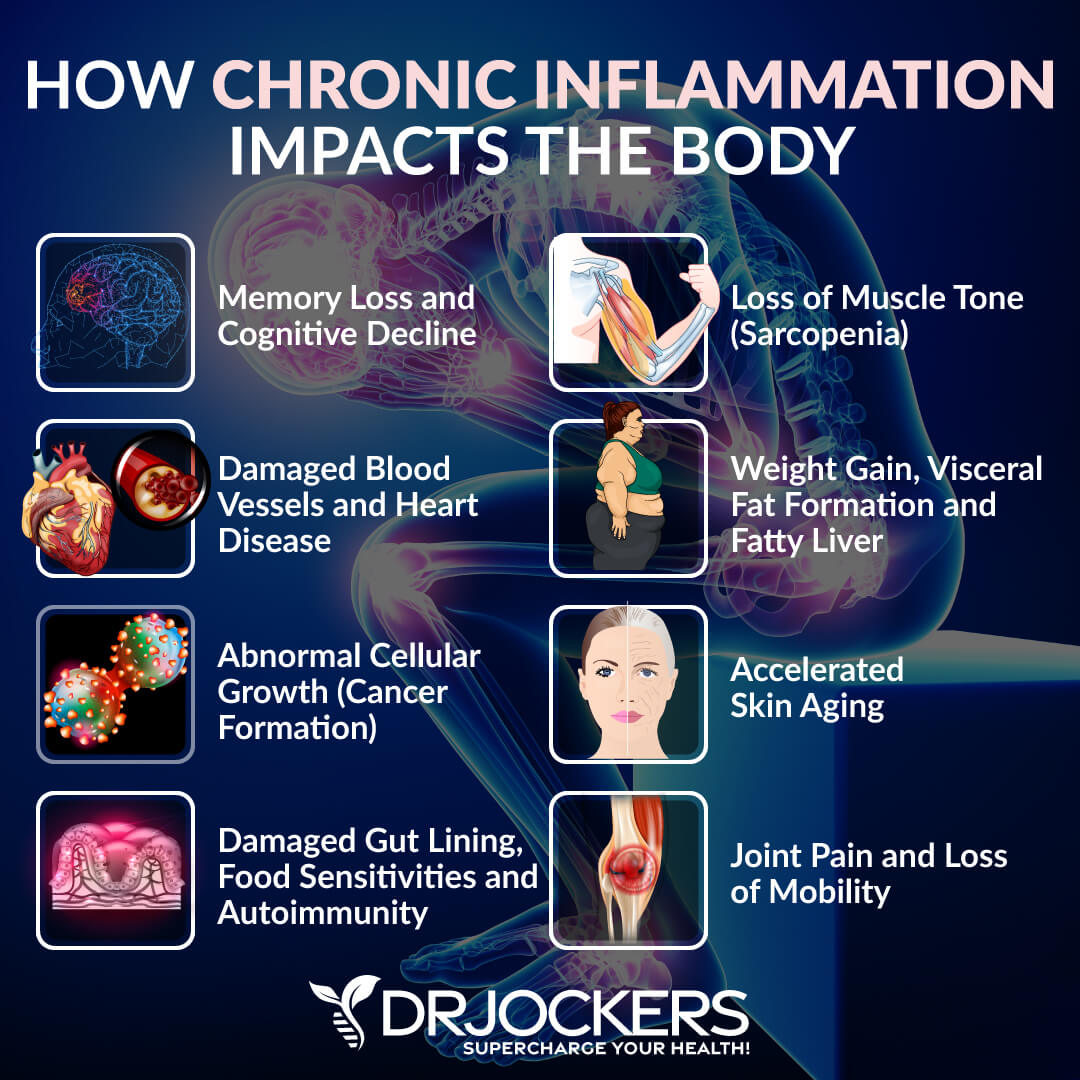
What is Inflammation?
Inflammation is the body’s natural defense mechanism. It is part of the body’s innate immune system and can be triggered by many things. It is a complex process by which the body’s white blood cells are released into the blood or affected tissues to fight infection. Inflammation is essentially the body’s way of tagging a part of the body to receive attention from the immune system.
There are two types of inflammation, acute and chronic. Acute inflammation starts quickly and generally disappears within a few days. Acute inflammation protects us against damaged cells, viruses, and bacteria. In this way, inflammation is beneficial.
Chronic inflammation is systemic inflammation that can last for months or years. Many things can contribute to chronic inflammation including inflammatory foods, environmental toxins, excess weight, and stress.

Chronic inflammation & Disease
Chronic inflammation occurs when our bodies are repeatedly exposed to these influences and inflammatory mediators are produced throughout the body. The immune system becomes overwhelmed as the ongoing stimulus results in more cell recruitment, increased inflammation, and changes to cells.
White blood cells will eventually start attacking internal organs or other necessary tissues and cells, which is characteristic of autoimmunity. This inflammatory response continues until the cause of the inflammation is addressed.
Chronic inflammation is at the root of most, if not all chronic diseases including cancer, ALS, and heart disease (1). It also increases the risk for diabetes and weight gain, aging, lung issues, increased bone loss and lack of bone growth, and depression.
Autoimmune diseases are also a result of inflammation. In autoimmune disease, the body’s immune system triggers an inflammatory response to its own tissues. The body responds as if normal tissues are infected and attacks these tissues. Autoimmune diseases, such as Hashimoto’s thyroiditis and arthritis, develop as a result.
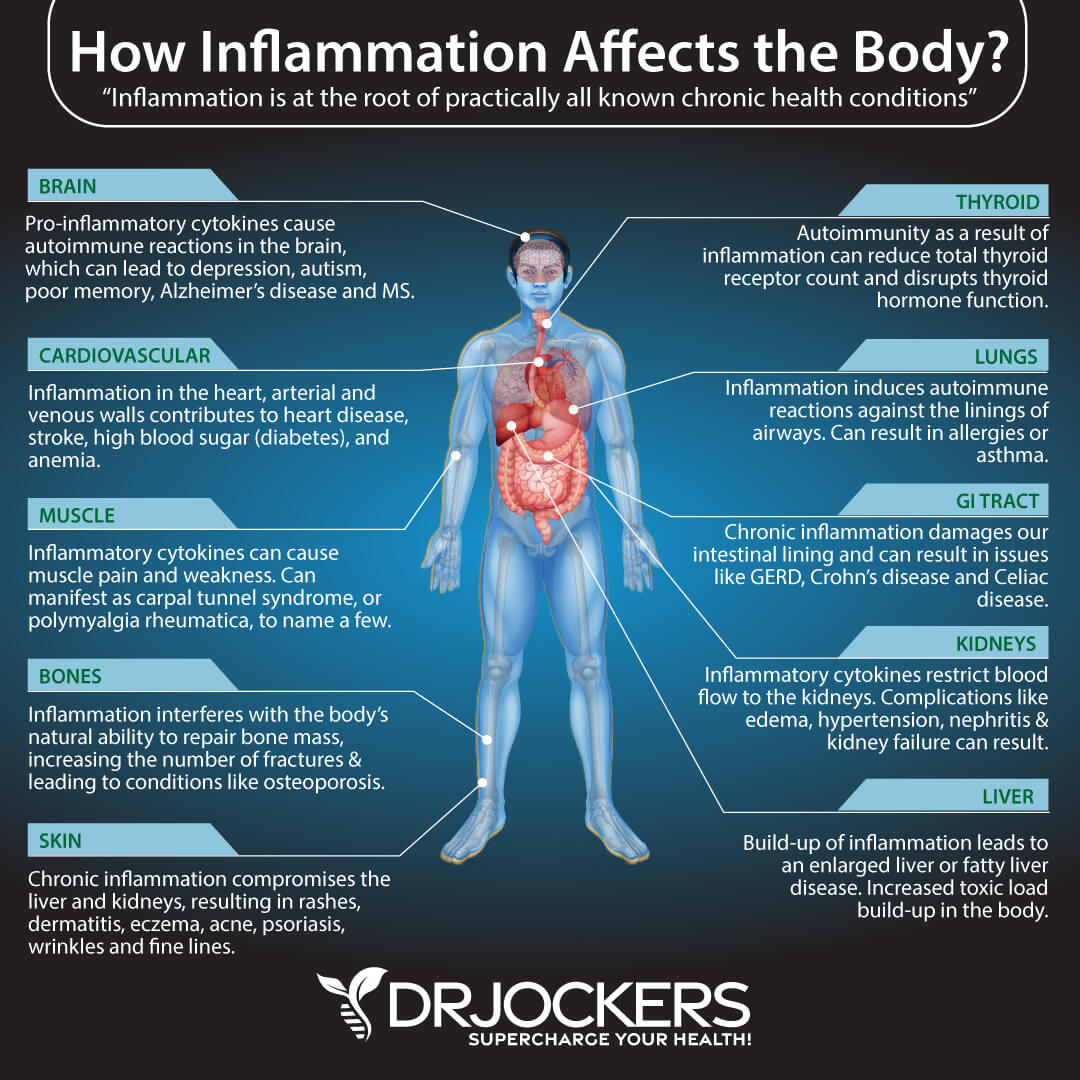
Inflammation & Mitochondria
Mitochondria are tiny structures within just about every cell of your body. They are responsible for producing the energy your cells need to carry out their functions. What many people don’t realize is that these tiny structures are also very vulnerable to chronic inflammation.
What this means is that chronic inflammation damages mitochondria, lowers your body’s overall ability to function and heal, and steals energy from just about every process in your body.
It is critical to test for inflammation and take measures to reduce inflammation in the body. The best tests for inflammation are Fasting Insulin, HbA1C, C Reactive Protein, Serum Ferritin, and Red Blood Cell Width. Each of these tests will be explained below and both clinical and optimal ranges will be given.
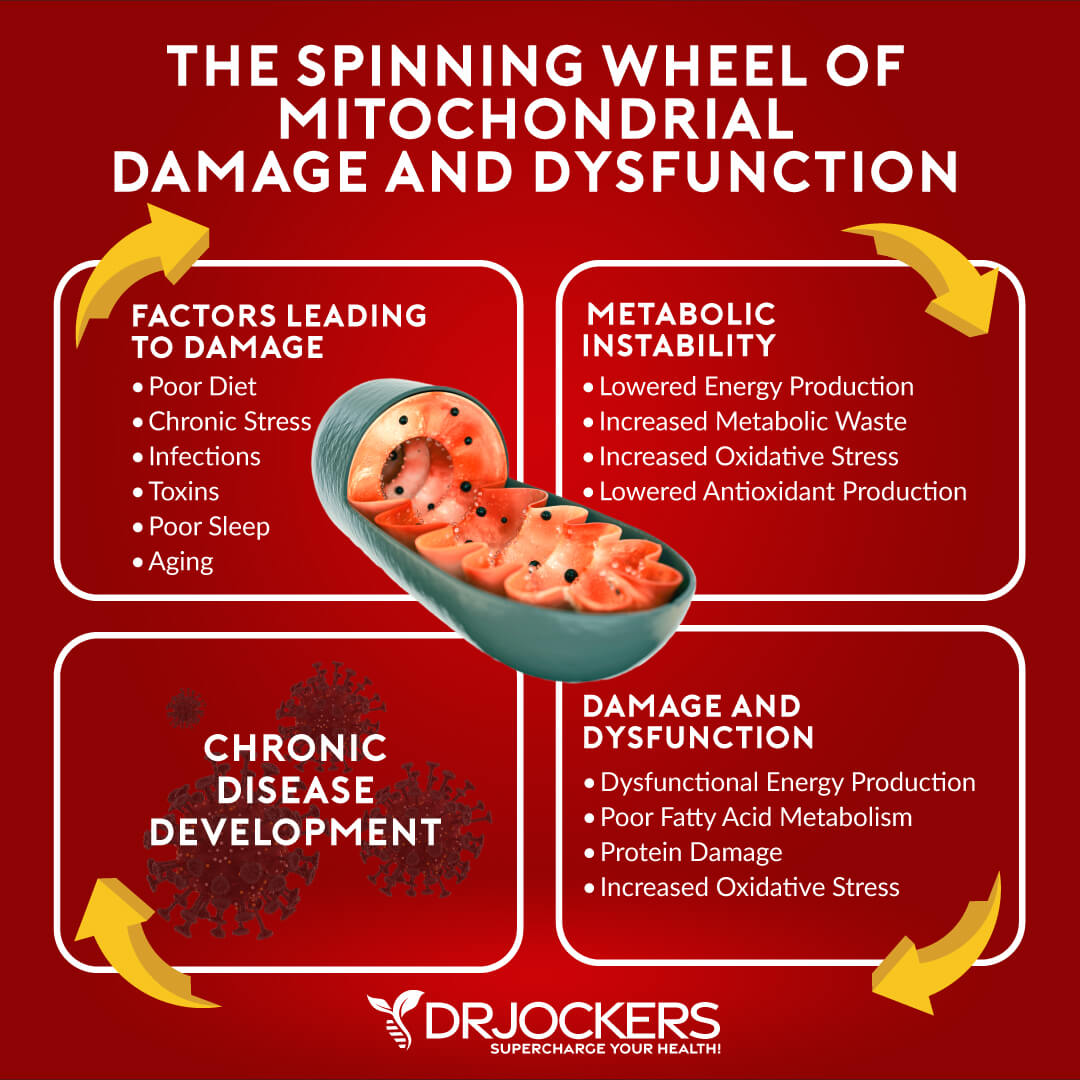
5 Tests for Inflammation
With most health issues it can be extremely helpful to test and retest inflammatory markers periodically when attempting to overcome a health challenge. This will allow for detection of specific target points and will make progress easier to track moving forward.
I find that having these markers recorded at the beginning of a health plan generally improves the outcomes by providing quantifiable data points that can be monitored throughout the process.

Fasting Insulin
The fasting insulin level test is a valuable test for detecting levels of inflammation. Insulin is a hormone that is produced and stored in the pancreas. Insulin helps transport glucose from the blood to cells. When the body recognizes that blood sugar is elevating, the pancreas releases insulin.
Our bodies need some circulating insulin at all times. However, high or low insulin levels can be problematic. A high insulin level is a sign of insulin resistance or diabetes. The association of obesity, insulin resistance, and chronic low-grade inflammation has been evident for years. All are related to aging as well (2).
Insulin resistance is the decreased ability to respond to the effects of insulin. As a result, the body produces additional amounts of insulin which increases inflammatory processes within the body.
Over time, surges of insulin can cause chronic health complications. Health conditions associated with insulin resistance include type 2 diabetes, cardiovascular disease, obesity, and high blood pressure.
High fasting insulin can also indicate metabolic syndrome. Metabolic syndrome is a set of risk factors that increases a person’s chance of developing serious conditions such as cardiovascular disease, type 2 diabetes, and stroke. These risk factors include: insulin resistance, abdominal obesity, unhealthy lipid levels, and high blood pressure. It is estimated that 34% of Americans have metabolic syndrome.
Clinical Range: 2.6-24.9 uIU/ml
Optimal Range: 1.0-5.0 uIU/ml
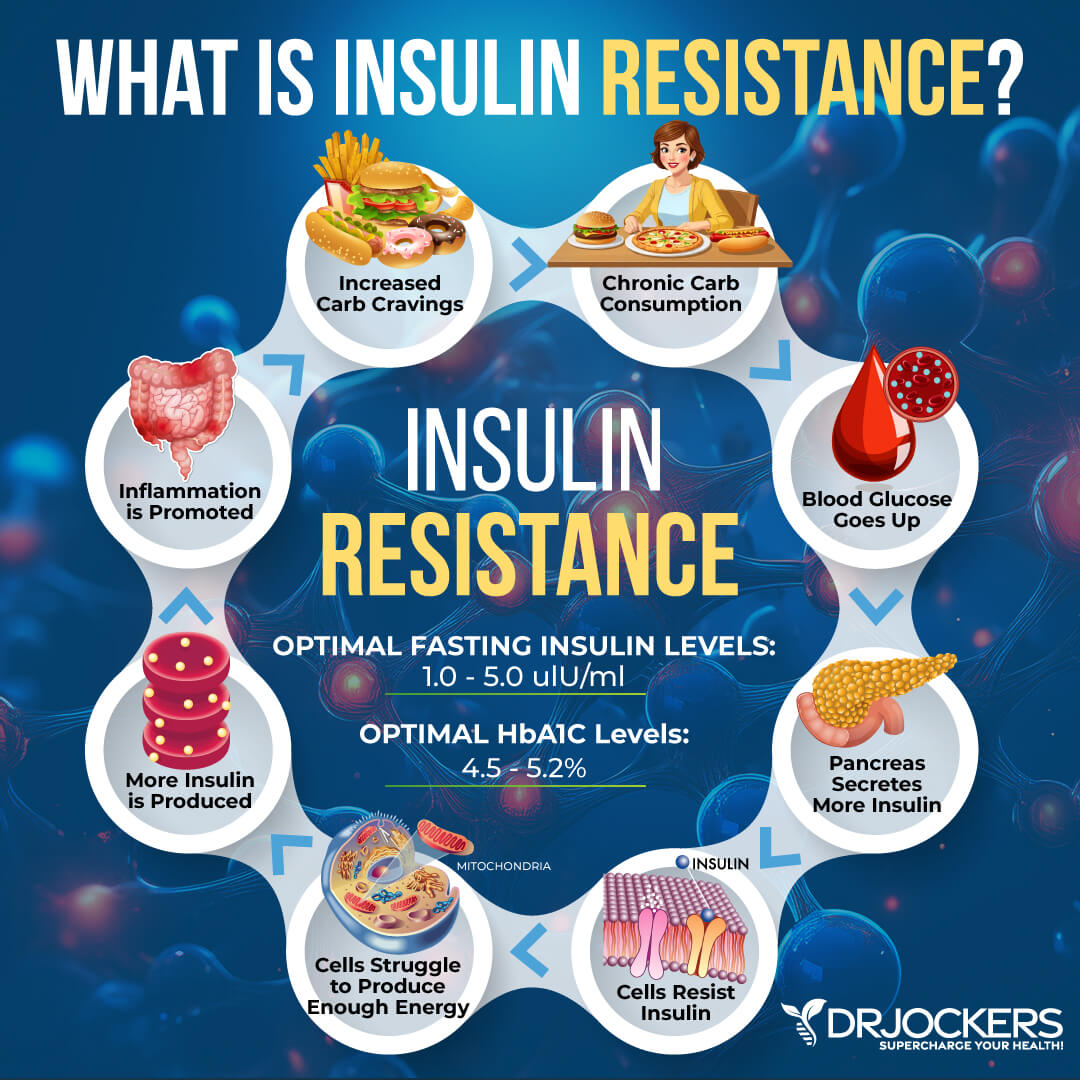
Hemoglobin A1c
Hemoglobin A1C (HbA1c) gives the average amount of glucose in the blood, or blood sugar, over the past 3 months. It is one of the top tests for determining whether a person has inflammation.
Hemoglobin A1c (or glycated hemoglobin) is formed in the blood when glucose attaches to hemoglobin, the protein in red blood cells that carries oxygen. The higher the level of glucose in the blood, the more glycated hemoglobin is formed.
Red blood cells are constantly forming and dying, but typically they live for about 3 months. Thus, the A1C test reflects the average of a person’s blood glucose levels over the past three months. The test is reported as a percentage. The higher the percentage, the higher a person’s blood glucose levels have been.
The HbA1c test can screen for diabetes and prediabetes. It is also used to monitor the glucose control of diabetics over time. Chronically elevated glucose levels as reflected by a high HbA1c, can damage the body’s organs and nerves.
Chronically elevated blood sugar reacts with enzymes and other protein molecules to create Advanced Glycation End Products (AGEs) (3). AGEs are highly inflammatory and damage tissue throughout the body. The result is neurological and cardiovascular complications which are common with diabetes.
Clinical Range: 4.8-5.6
Optimal Range: 4.5-5.2
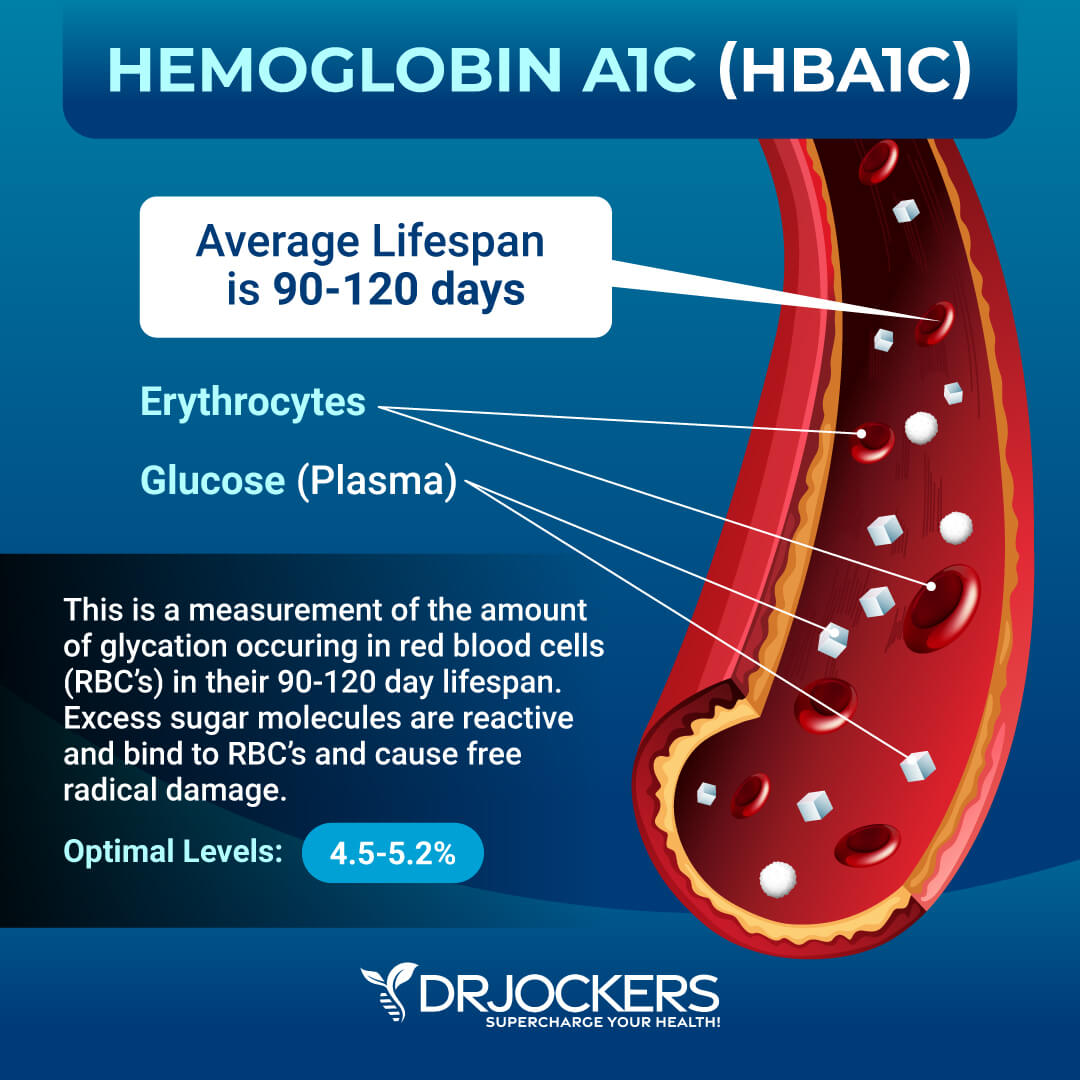
C-Reactive Protein (CRP)
The C-Reactive Protein (CRP) test is a blood test marker used to assess levels of inflammation in the body. CRP is a protein produced in the liver. It is an acute phase reactant, which means it increases or decreases in concentration with inflammation or trauma.
The best measurement to detect CRP is the high-sensitivity CRP (hs-CRP) test. This is often used for cardiovascular risk assessment since high-sensitivity CRP has been linked to heart disease and mortality (4).
CRP is also useful in diagnosing and monitoring chronic inflammatory conditions such as inflammatory bowel disease, arthritis, autoimmune diseases, and psychological issues (5). Measuring CRP gives the inflammatory status of the body and is critical for diagnosing and monitoring many chronic health conditions.
Clinical Range: 0-3 mg/L
Optimal Range: <1 mg/L
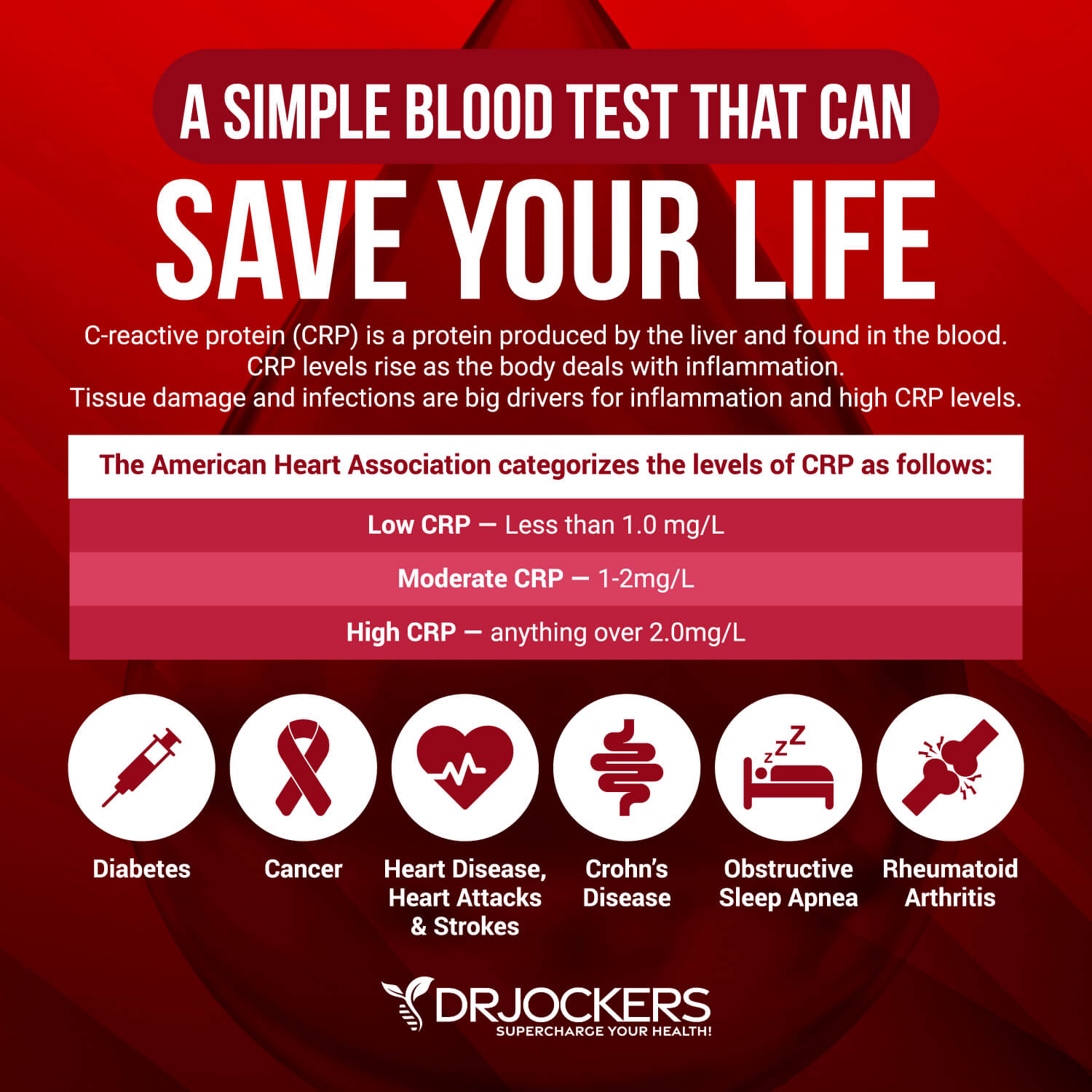
Serum Ferritin
The ferritin test is a simple blood test that measures the level of ferritin in the body. Ferritin is a blood cell protein that stores iron. Low levels of ferritin indicate iron deficiency which causes anemia, a reduction in the number of red blood cells.
Like CRP, ferritin is an acute phase reactant. This makes a ferritin test useful in detecting a chronic disease process. Elevated levels of ferritin can indicate inflammation, liver disease, chronic infection, autoimmune disorders, and some types of cancer (6).
Clinical Range: 30-400
Optimal Range: Females (50-100), Males (75-150)

Erythrocyte Sedimentation Rate
The erythrocyte sedimentation rate is the rate at which your red blood cells in anticoagulated whole blood drop in a standardized tube over one hour. This is a great test to measure inflammation.
When our bodies are inflamed, the blood sticks together and it slows the sedimentation rate down. Anything over 20 mm/hr is a sign of significant inflammation and optimal results should be under 10 mm/hr.
You can also look at platelets as a measurement tool of inflammation and the stickiness of blood. Platelets elevated above 250 is a sign of inflammation. The sweet spot for platelets is between 175 and 250. Below 175, immune function and blood clotting are compromised; the same is true for levels above 250.
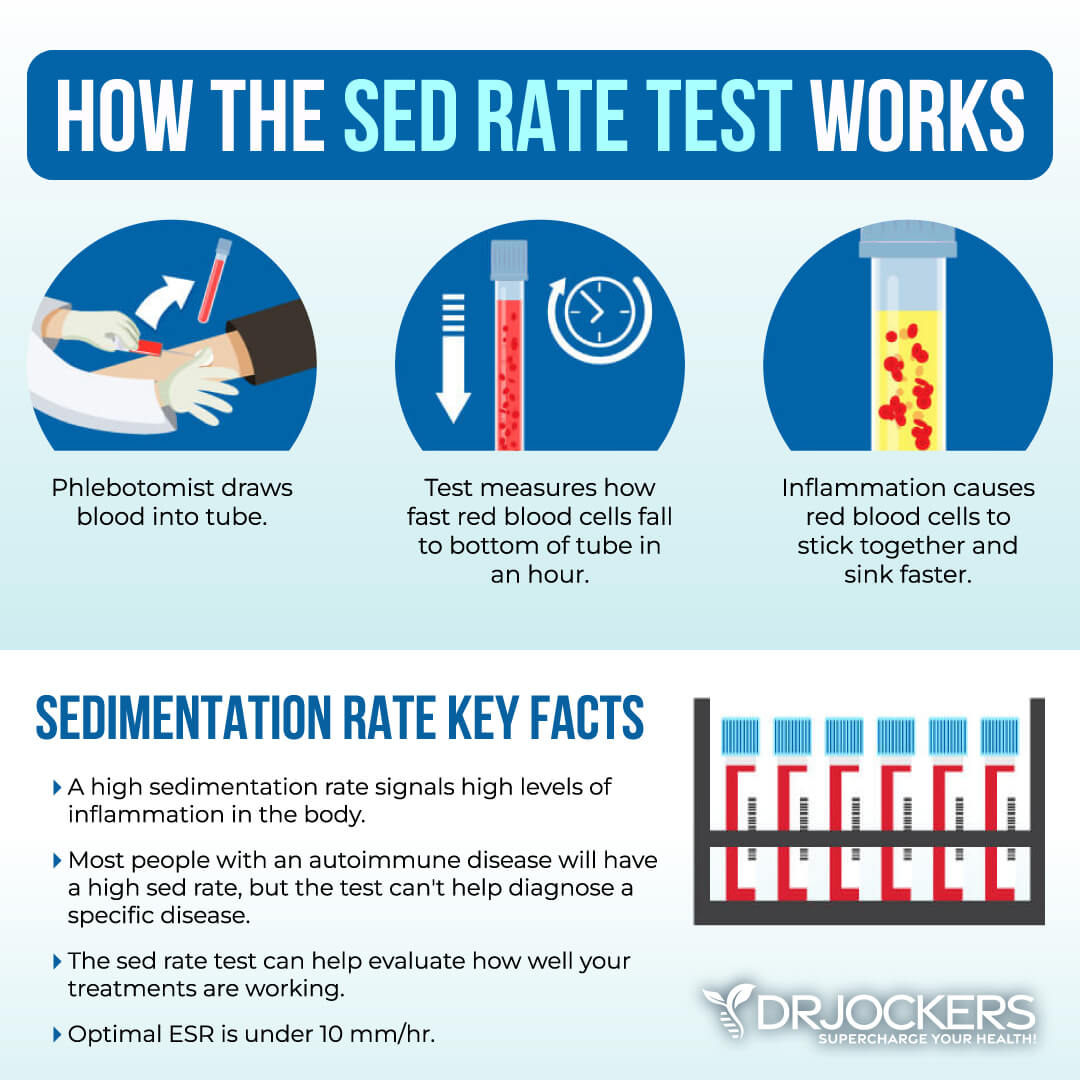
Red Blood Cell Width (RDW)
Red Cell Distribution Width (RDW) is an excellent test to detect inflammation in the body. A 2011 study found that RDW is a “robust predictor” of the risk of mortality from all causes and bloodstream inflection (7). RDW reflects overall inflammation and oxidative stress.
RDW is an expression of the variation in size of the red blood cells that make up the total population of red blood cells in an individual. The size of the blood vessel has a lot to do with the maturation of the blood cells and this is dependent upon methylating agents such folate and B12.
Red blood cells begin their life cycle very large but as they mature in the bone marrow, the overall width is reduced to a more optimal size to deliver oxygen and nutrients to the cells. Elevated RDW is associated with multiple diseases. According to a 2018 study published in Science Reports, elevated RDW levels may be associated with sarcopenia, a common issue in older people with inflammaging (8). The clinical range is between 12.3 and 15.4 percent while the optimal range is 11.5 and 13 percent.
RDW is a widely available, inexpensive test that is included in the complete blood count panel.
Clinical Range: 12.3-15.4%
Optimal Range: 11.5-13%
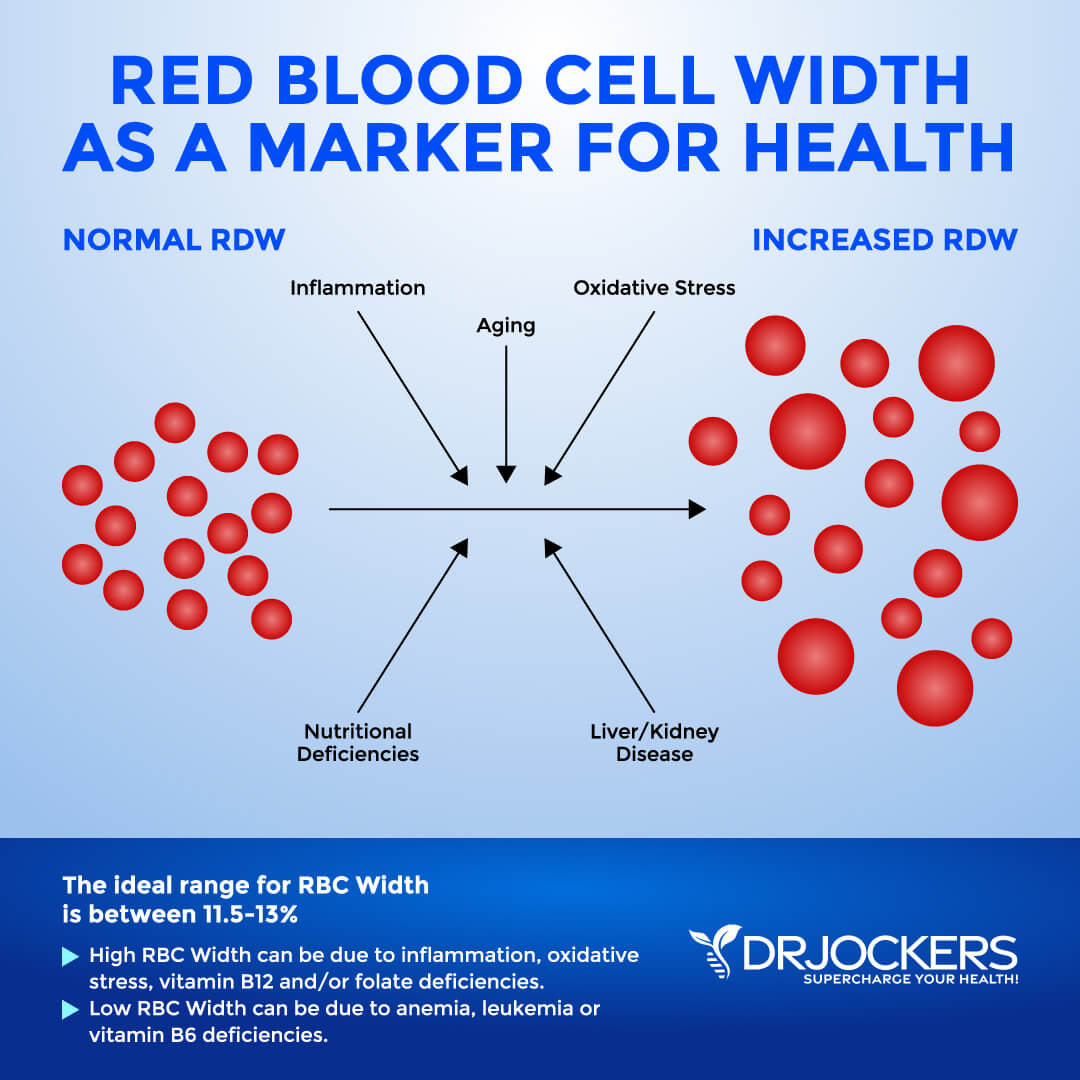
The Comprehensive Blood Analysis
The Comprehensive Blood Analysis (CBA) is a detailed test that looks at all the above tests for inflammation, including the high-sensitivity CRP. The test is more sophisticated than what most conventional doctors run and examines all parameters of inflammation, blood sugar analysis and thyroid function.
The CBA includes a Complete Blood Count, Complete Metabolic Panel, Urinalysis, Lipid Panel, Zinc/Copper ratios, Vitamin A & D levels and Thyroid Panel. It tests immune function, thyroid function, blood sugar regulation, liver function, nutritional deficiencies and much more. People who may benefit from this test include anyone with low energy, weight gain, chronic digestive problems or joint pain, brain fog, skin or hair issues, hormonal issues, and depression.
The Comprehensive Blood Analysis can be found here and should be done regularly as both a preventative measure and to monitor inflammatory levels.
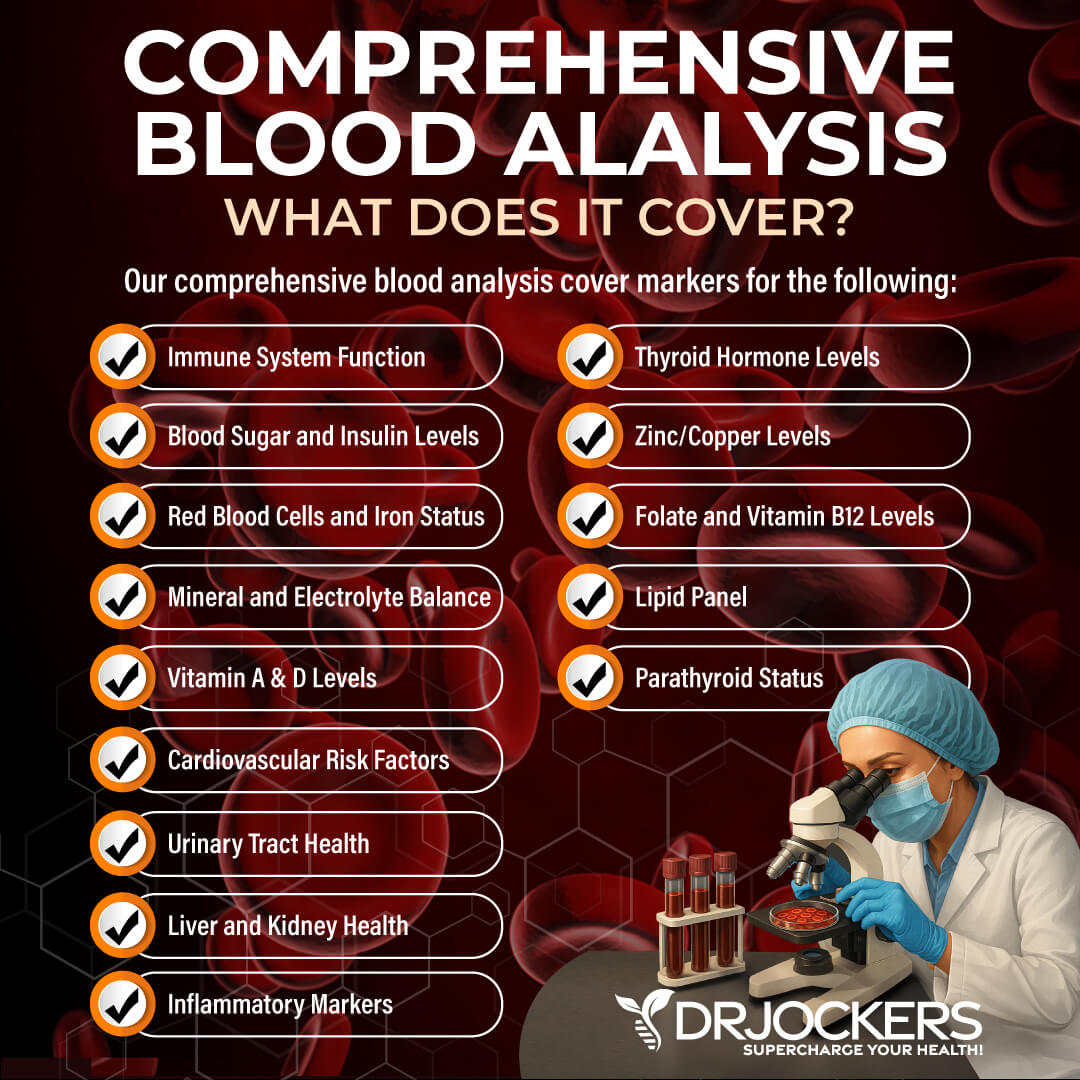
Summary
Chronic inflammation is associated with serious health conditions. Heart disease, cancer, ALS, diabetes and other health problems have been linked to chronic inflammation. In fact, it is almost always a factor in chronic diseases.
There are 5 top tests for detecting and measuring the level of inflammation in your body. These tests are Fasting Insulin, Hemoglobin A1c, C-Reactive Protein, Serum Ferritin, and Red Blood Cell Width.
These tests and much more are included in the Comprehensive Blood Analysis. The CBA should be done regularly to monitor inflammation in the body. It looks at all areas of the thyroid, liver enzymes, iron levels, vitamin D, B12, fasting insulin and more. For action steps on how to reduce inflammation quickly, check out this article.
If you want to work with a functional health coach, I recommend this article with tips on how to find a great coach. We do offer long-distance functional health coaching programs. For further support with your health goals, just reach out and our fantastic coaches are here to support your journey.
Inflammation Crushing Ebundle
The Inflammation Crushing Ebundle is designed to help you improve your brain, liver, immune system and discover the healing strategies, foods and recipes to burn fat, reduce inflammation and Thrive in Life!
As a doctor of natural medicine, I have spent the past 20 years studying the best healing strategies and worked with hundreds of coaching clients, helping them overcome chronic health conditions and optimize their overall health.
In our Inflammation Crushing Ebundle, I have put together my very best strategies to reduce inflammation and optimize your healing potential. Take a look at what you will get inside these valuable guides below!





Seventy five years old have been on keto diet for 60 days. recent blood test results: fasting insulin 10 uIU/ml, ferritin 326, c reactive protein .7mg/L, RDW 12.9% and Hemoglobin A1C 5.2%. Weigh 195#, 6ft tall and body fat 15%. Based on your comments, believe I have inflammation problem. If I continue on keto diet and change my fat composition over next year do you think I can reduce this inflammation level to meett your criteria. Thank you for this informative site and your kind thoughts.
Hey Mike! Check out this article: https://drjockers.com/chronic-inflammation/
Why is there no ‘unsubscribe’ link?
Hey Ian, if you are talking about for emails then there is one at the bottom of every email if you wish to no longer receive them!
My father was tested for cancer in gastrointestinal tract as he had Hb decreasing.but all normal in endoscopy and CT .after transfusion hi s Hb increased to 9 and is same when tested after 10 days but his lymphocyte count is 60 and neutrophils is 29 he has fever evng time.
So sorry to hear this!! We are praying for him!!
I am 70 year old female. I tore my meniscus in dec 2016. I had a total knee replacement July. 2017. Even though I did everything I was asked to do for therapy my range of motion was not improving normally. I was discharged from rehab because I was not improving. My flexion was -28 degrees and was told my knee was loaded with scar tissue. In feb 2018 I had another surgery to get rid of “tons of scar tissue”. Now it has come back with a vengeance. Again after that surgery I did everything I was asked to do. 6 hours a day on a CPM machine plus exercises. I was very faithful and compliant. Now i am at -34 degrees. Obvisously it is very difficult to walk and function normally.
I found your website regarding inflammation and feel like I have finally found something to help me. I did just order your supplements and am very hopeful. I would love to be your poster child for how to get rid of scar tissue.
Xxoo. Ida Jette.
So sorry to hear about that!! We are praying for healing for you Ida!!
Just curious why the c-peptide test is not included?
Yes I could have included that as well but these labs are easier to get from your primary care physician.
Dr. Jockers. I am on a chemo drug tamoxifen which the side effects are mentioned in your article . How do you know whether to treat or just deal with drug side effects??
Hey Donna, I am sorry to hear this. I would highly recommend that you consult with a functional health practitioner who will customize a specific approach for your health needs. These articles offer more information: https://drjockers.com/chemotherapy-drugs-work/, https://drjockers.com/functional-nutrition-tips-to-find-a-great-health-coach/
What does “clinical range” mean?
That is the range the medical system uses to diagnose a specific disease or disorder. In functional medicine, we look at the optimal ranges on these labs.
Dr, Jockers, do you know of any functional health practitioner close by to Midlothian Texas? Are all functional health practitioner’s Chiropractors as well, and do they recommend massage after treatments?s
Hello, no not all functional health practitioners are chiropractors. Many are MD’s, DO’s, nutritionists, naturopaths, etc. Here is a helpful article on how to find a good practitioner: https://drjockers.com/functional-nutrition-tips-to-find-a-great-health-coach/